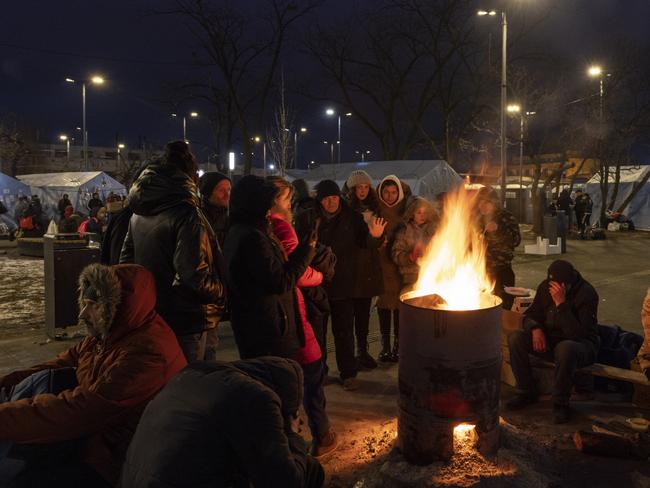Sanctioning Russia is all gain and no pain for Australia

From last week, if President Vladimir Putin asked you to help him out with a few hundred dollars, you would be obliged to politely decline or risk criminal prosecution in Australia. Now that he is personally under Australian sanctions, making any assets available to him is punishable by up to 10 years’ imprisonment.
Other Russian individuals and organisations on Australia’s sanctions list include Putin’s ministers, propagandists, judo chums and even Russia’s Central Bank. In imposing these sanctions, Australia is largely moving in lock-step with the US, although it lags behind the EU, which has sanctioned as many as 351 Russian MPs.
Australia, too, can do still more. It could begin by extending its sanctions to the “Navalny 35”, a list of oligarchs compiled by Russia’s opposition leader Alexei Navalny, poisoned and imprisoned yet unbowed. Those Russian officials involved in human rights abuse or corruption could be targeted under Australia’s freshly minted Magnitsky law, which has the added benefit of authorising assets freezes and travel bans against family members of the perpetrators.
In fact, Australia is uniquely well-positioned to do so. Paradoxically, this is not because Canberra has a particularly strong hand in the sanctions game vis-a-vis Russia, but precisely due to the modest effect of the measures it takes.
For many European nations and, to a lesser extent, the US, economic warfare against Russia is a costly necessity. Western companies lose out on access to the Russian market while consumers pay more as Russia hikes up energy prices. This is to say nothing of the uglier tactics that Russia is either contemplating or already implementing, such as forced nationalisation of overseas businesses or arbitrary detentions of foreigners.
With the possible exception of reprisals against its citizens, Australia need not worry about any of that. Its trading volume with Russia is very limited. As of 2020, Russia was Australia’s 46th largest trading partner, with Australian exports to Russia being over twice as large as imports from Russia. While other sanctioning powers must accept economic self-harm as they wean themselves off Moscow’s oil, Australia can afford to be blase about Russia’s threats of retribution.
One interpretation of this situation is to say that Morrison’s government has scraped the bottom of the sanctions barrel, and no further sanctions it inflicts on Russia will have any discernible effect.
Some of my excellent colleagues at the ANU ascribe to this position. I think this view overlooks the important but under-appreciated role of sanctions as a tool of condemnation.
Yes, there may be precious little by way of Russian assets frozen in Australia. But if you’re an oligarch or Russian public official on the Australian sanctions list, good luck obtaining access to banking services anywhere in the world. News of sanctions travels quickly, and bank compliance officers are paid to be risk-averse.
Internationally, being in the vanguard on sanctions is an opportunity to show political leadership. So far, Australia has been tottering in the footsteps of its anglophone cousins. But it faces none of the constraints that they do. To take an extreme example, Boris Johnson’s Tory government is engaged in impossible gymnastics as it tries to clean up the City of London without affecting the good men and women who decided it was their calling to service Russian wealth. The US has had to muster the courage to overcome its continuous reliance on Russian oil. There is no reason why, unencumbered by any of these worries, Australia should continue to follow rather than to lead.
One must be mindful, of course, of possible unintended consequences, such as Russia’s resort to “hostage diplomacy” following any further escalation. Unfortunately, that risk is already present. In line with the US, Australia has advised its citizens to depart Russia as soon as they can. And, having rightly placed Putin on a sanctions list alongside suspected terrorists, Scott Morrison should not hope to salvage an awful lot of goodwill in relations with Putin’s Russia.
What remains is an opportunity to further burnish Australia’s credentials of “standing up to bullies”, wherever they may be. This is not at all a bad example to set for others to follow, especially from a country that might sooner or later face some bullies of its own.
Anton Moiseienko is a lecturer in law at the Australian National University.



Despite being on the other side of the world, Australia has joined forces with its allies in unleashing sanctions on Russia in response to its brutal invasion of Ukraine.